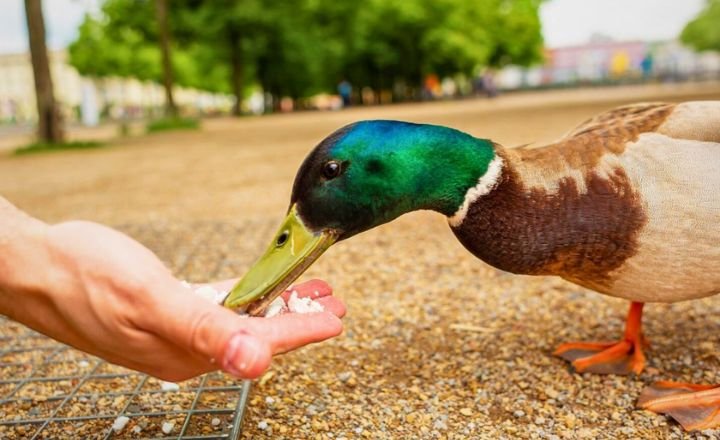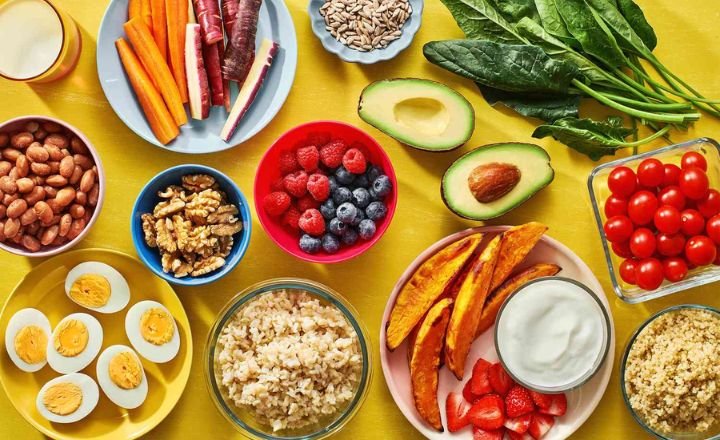A serene pond, surrounded by graceful geese eagerly awaiting your next move as you reach into your bag and pull out a loaf of bread, can geese eat bread this seemingly innocent act of feeding waterfowl has sparked debates among bird enthusiasts and environmentalists alike.
A group of charming geese waddle up to you with hopeful eyes, expecting a tasty treat. You reach into your bag and pull out a few pieces of bread, eager to share some goodwill with these feathered friends.
So, Can Geese Eat Bread?
Feeding bread to geese may seem like a harmless gesture, but in reality, it can have detrimental effects on these beautiful birds. Bread is not a natural food for geese and consuming large quantities of it can lead to nutritional values and imbalances of health issues.
When bread is thrown into water for the geese to feed on, it can cause water pollution and attract other pests that disrupt the ecosystem.
Both White and Brown Bread, a big no-no!
Consuming high carbohydrate foods like white and brown bread may seem harmless to us, but for birds, it can lead to a serious condition known as angel wing.
This ailment affects their ability to fly by causing an unnatural growth in the wings, ultimately leaving them grounded. Not only does frequent feeding of bread contribute to this condition, but it can also result in malnourishment for these birds.
Moldy and Expired Bread is Even More Dangerous
The horror of discovering a piece of mouldy bread nearby your beloved geese. It may seem harmless at first glance, mouldy bread can pose a significant threat to their health.This overlooked danger lurks in trash cans and on the ground, potentially leading to a deadly lung infection known as aspergillosis.
For those who cherish their feathered companions, vigilance against these seemingly innocuous items is crucial for ensuring their well-being.Geese add charm and liveliness to any yard, but they are also vulnerable to hidden dangers like mouldy bread.
Besides Carbohydrates, What Makes the Bread Harmful?
Feeding geese, it’s important to consider not only their enjoyment but also their health. Opting for treats with little to no nutritional value can have detrimental effects on the overall well-being of these animals.
Like humans, geese can suffer from weight-related issues due to consuming high-calorie foods that lack essential nutrients. With a variety of healthy treat options available, such as vegetables and greens rich in vitamins and minerals, there is simply no need to resort to unhealthy choices.
Healthier Alternatives of Bread for Geese
A geese a nutritious treat, considering options like barley, oats, cracked corn, birdseed, vegetable peels, and chopped grapes can be a great way to enhance their diet.

These treats provide a variety of nutrients that can contribute to the overall health and well-being of your feathered friends. For example, barley and oats are rich in fibre and protein while chopped grapes offer vitamins and antioxidants.
If you Still Want to Feed it Anyway
Feeding your goose bread may seem harmless, but their addiction to it can have serious consequences. Instead of satisfying their cravings regularly, consider feeding them bread as a rare treat – maybe once every month or two.
And when you do indulge them, remember: moderation is key. Keep the quantity small to avoid any potential health issues that might arise from a diet too rich in carbs.
Let Alone Geese, it Also Pollutes the Environment
A serene park setting, with a picturesque pond where geese gracefully glide through the water. This idyllic scene is tarnished by the unseemly sight of uneaten bread scattered around.

Not only is this unsightly, but it also has far-reaching consequences for the environment. The mouldy bread left behind by geese not only releases noxious odours that detract from the natural beauty but also contributes to pollution in ways we may not immediately consider.
It Makes the Geese Full for Healthy Food
As concerns grow about the health and well-being of geese being fed bread, it is important to acknowledge the impact of this practice on their overall nutrition. While bread may provide a quick and convenient way to feed these birds, it lacks the essential nutrients they need for optimal health.

By opting for healthier food options such as grains, seeds, fruits, and vegetables, we can ensure that our feathered friends are getting the proper nourishment they require. Animal and bird protection societies play a vital role in spreading awareness about the dangers of feeding bread to ducks and geese.
Summary
Can geese eat bread, it is not the healthiest or most nutritious option for them. Feeding geese too much bread can lead to malnutrition and health problems, as well as contribute to environmental issues such as water pollution.
It is important to be mindful of the food we provide to wildlife and opt for healthier alternatives like grains, seeds, and greens. A providing a well-rounded diet for geese, we can help support their overall health and well-being.
FAQs
Can gases digest bread?
No, gases cannot digest bread. Digestion is a complex process that involves the breakdown of food into smaller molecules that can be absorbed by the body. Gases such as oxygen and carbon dioxide are not capable of breaking down food like digestive enzymes in the stomach and intestines.
Will feeding bread to gases lead to any negative consequences?
Feeding bread to geese can actually have negative consequences on their health. Bread is not a natural food for geese and can lead to malnutrition and obesity. It lacks the necessary nutrients that geese need to stay healthy and can also cause digestive issues.
Is it safe to expose gases to different types of food like bread?
Exposing gases to different types of food like bread can be risky as some gases may contain harmful chemicals or contaminants that can potentially contaminate the food. It is important to ensure that the gases being used are safe for consumption and do not pose any health risks.
